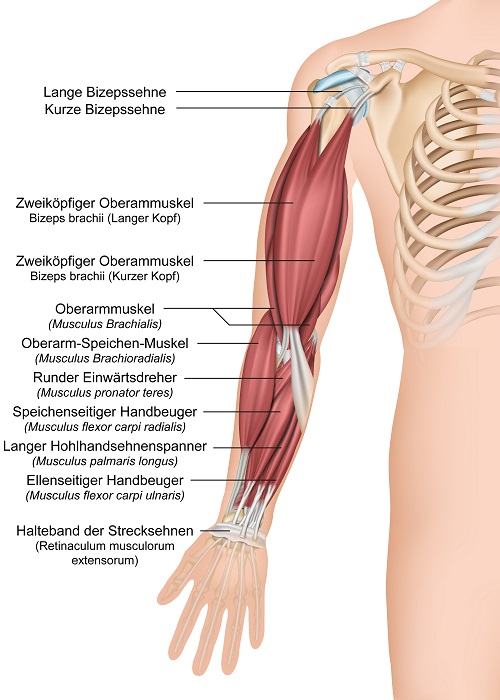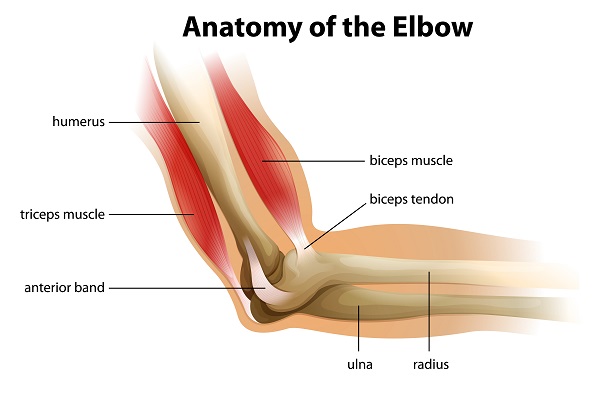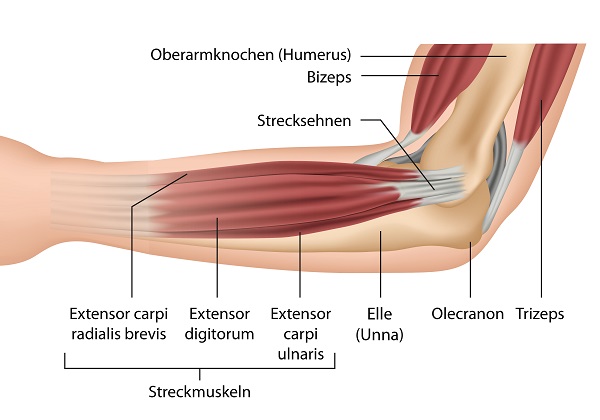Positive Health Online
Your Country

What is Tennis Elbow?
listed in bodywork, originally published in issue 239 - July 2017
Tennis Elbow is an overuse condition/injury which is generally located on the outside of the elbow joint. The medical name for this condition is Lateral Epicondylitis. The condition is most commonly linked to those play Tennis (hence the name), but can affect anyone who has a repetitive job that causes the muscles in the lower arm to work eccentrically*.

With tennis players the cause (especially in those players who are not properly conditioned, or playing at elite level) is generally as a result of the Backhand Stroke action. The action of the Backhand means that when the player grips the racket the muscles in the forearm (the Extensors), contract and the hand and arm alignment changes from the normal position.

* When the force of the ball hits the racket the muscles in the forearm, which are already contracted, are forcibly stretched under the weight/pressure of the contact, causing micro tears in the muscles attachments at the lateral epicondyle. Repeated repetition of this action can lead to more tissues getting damaged and if not treated/rested. Eventually the tissues become inflamed at their attachment points.

Signs of Tennis Elbow:
- Pain in the soft tissues around the joint when doing anything that involves the gripping of the hand (including simple tasks such as lifting the kettle);
- Swelling of the soft tissues around the elbow joint;
- Redness. (“itis” as in epicondylitis, means that there is inflammation present).
As mentioned before, this condition doesn’t just affect sporting participants; it can and does also affect manual workers such as builders, plasters, painters, as well as office workers, nurses etc. etc. and is more a common problem than would have been thought at first sight.
Should you suspect this condition is present the initial action should be to apply the R.I.C.E. principals (Rest, Ice, Elevation & Compression). Rest will help slow the progression of the condition. Ice will help to limit the extent of the inflammation. Elevation and Compression help to take the pressure of the area as well as restrict any swelling that may occur. Using the R.I.C.E. principals can help limit the inflammation in the early stages and help the healing process.
The sufferer will still need to seek help to resolve the matter. The chances of it just going away by itself eventually are slim, and recovery will depend on resolving the inflammation, and rehabilitation of the muscles involved in the overuse injury, as well as possible changes to the persons biomechanics.
Treatments such as Acupuncture, Physiotherapy and Remedial Massage have proven to be effect in the treatment of this condition, but in some extreme cases if the condition becomes really acute the suffer may need medical intervention such as surgery.
Comments:
-
No Article Comments available